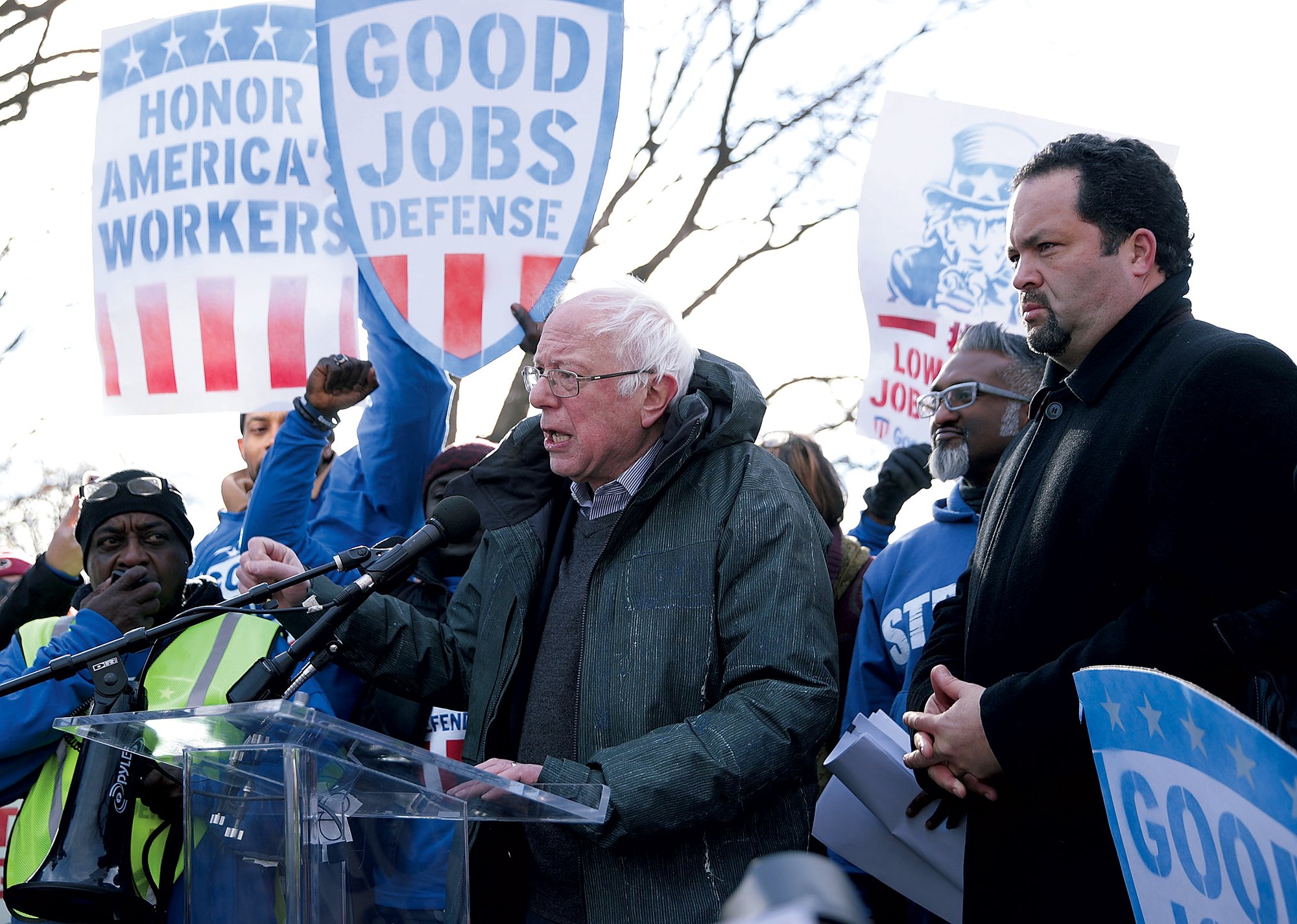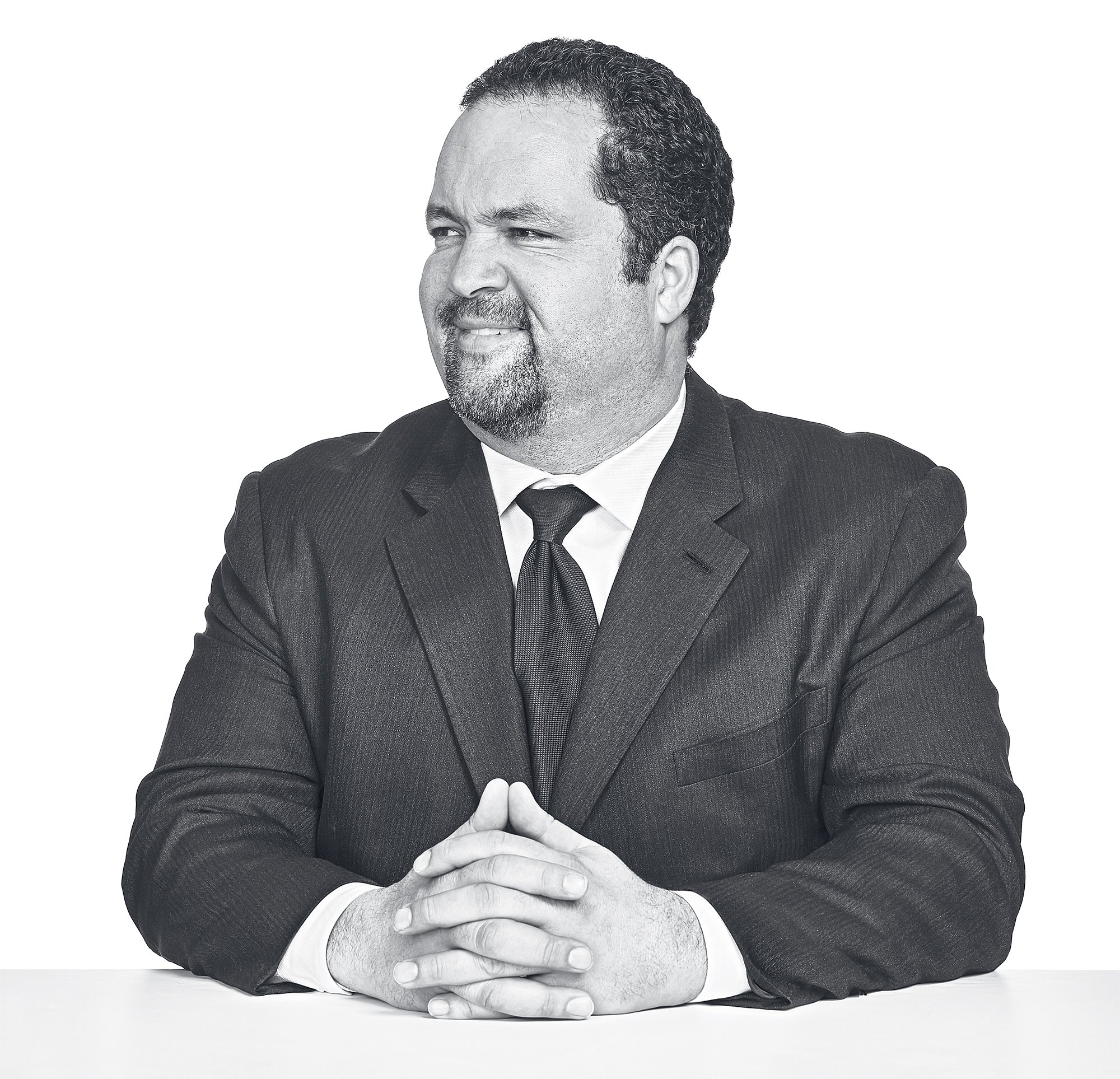Ben Jealous was born to a black mother and a white father who lived in Maryland at a time when interracial marriage was still illegal there. Now he’s hoping to become the state’s first African-American governor.
This is Jealous’s first run at elected office, but he’s been in the political spotlight since 2008, when he was selected as the youngest-ever president of the NAACP. While running the Baltimore-based civil-rights organization, Jealous wasn’t just focused on national issues—he also helped push Maryland to legalize same-sex marriage and ban the death penalty. Those progressive credentials—and an endorsement from Bernie Sanders—are part of what differentiates him from the six other Democrats looking to unseat incumbent Larry Hogan. Maryland is a famously blue state, but can someone from the left wing of the Democratic Party beat a Republican who has won surprising cross-party support? We sat down with the candidate to discuss his roots as an activist and his move into politics.
How did your parents meet?
Mom and Dad met as teachers at Harlem Park Junior High in West Baltimore. They were student teachers and shared the same classroom. Mom taught the first semester, and Dad taught the same students the second semester. Their university arranged for my father to stay with my mother’s parents while he looked for permanent housing.
Eventually, they go on a date to a recently desegregated theater in Baltimore. They are concerned about how the spectacle of their date will be received by blacks and whites. They go down separate aisles and meet in the middle of that row. When the lights come back on, they depart through separate aisles.
At the time, interracial marriage was illegal in Maryland, so they got married in DC. Many members of my father’s family disowned him, but his mother and brothers stood by him. My parents eventually moved to California, but they sent me back to Maryland every summer to know where I was from.
When you were in college, you got suspended for a semester and ended up dropping out for two years before returning to graduate. What happened?
While I was a student at Columbia, I helped lead a successful effort to block the university’s plans to scale back its financial-aid program. The university couldn’t kick us out then because we had the support of one of the school’s most generous donors. But the following year, I protested a plan to turn the Audubon Ballroom—the location of Malcolm X’s assassination—into a science lab. Of the students who engaged in the Audubon Ballroom protest, the only ones who were suspended had been leaders of the financial-aid protest the year before. So that was our payback.
Looking back, was there any unexpected benefit to being suspended?
It’s funny—that was really the beginning of my path to being president of the NAACP. I went on to represent the AFL-CIO’s youth wing as a speaker in the 1993 march on Washington, and I met [former NAACP executive director] Ben Hooks that day. During that time, I also met Derrick Johnson, the current president of the NAACP, and Stacey Abrams, who’s running for governor in Georgia. It was a great moment for me to learn from a wider set of peers and elders.
How did activism prepare you for politics?
What I specialize in as an organizer is building big, robust coalitions. Every victory I’ve won—whether it was leading the successful effort to abolish the death penalty in Maryland or chairing the successful effort to pass the Dream Act or putting organizers on the ground in Prince George’s County and Baltimore to help win marriage equality—was won the same way. If you build a big, robust coalition, then anything’s possible.
The other thing is just being an effective manager. When I came onboard, the NAACP’s finances were in notoriously bad shape. When I left, the front page of the Chronicle of Philanthropy read: “Benjamin Jealous Leaves the NAACP a Far Stronger Place.” Those are the two things you really need from your governor. Can you pull folks together to get things done? Can you run things well? I’ve been blessed that my work as an organizer and a businessman has prepared me well for both.

Is politics a better way to bring about change than activism?
I’m blessed to have been born into a generation that doesn’t have to make that choice. Activism has been very good training for leadership in our country. That’s what it means to be a nation that was born of a revolution. You see that with Barack Obama’s leadership, you see it with [former senator] Barbara Mikulski’s leadership. These are people who came up organizing people in their communities to get things done.
You’ve long pushed for criminal-justice reform, which is a familiar campaign wedge issue. How do you address unfairness in the system without it being used against you by your opponent?
Actually, I would relish a debate with Governor Hogan. I don’t think Hogan has spent more than five minutes trying to figure out how to make Baltimore more safe, let alone Maryland. If he did, he would know that the evidence shows that policies like “truth in sentencing” [which eliminates parole for many prisoners] not only do not make us safer—they cost us tens of millions of dollars. It’s a phenomenal waste of resources, and there are so many things we could do better. We could better pay police officers in Baltimore City so they don’t keep losing their best officers to Baltimore County. We could make sure that every region of the state has response teams for the opioid epidemic, and we could stop sending addicts to prison and start sending them to rehab so we keep families together.
But you have got to care, and you’ve got to have courage. I’m increasingly concerned that the governor lacks both.
How will Trump affect this election?
Hogan’s polling numbers against a Democratic opponent have drifted downward every month or two since Trump’s been in office. He started off in the 50s and now is in the low 40s. Hogan is going to have to run for governor with Trump around his neck.
Could your alignment with Bernie Sanders turn off more moderate voters?
My running mate, Susan Turnbull, supported Hillary Clinton in the primary. I supported Bernie. We both supported Hillary in the general—did everything we could to help beat Trump and help Clinton win. My campaign is a coalition of folks who came out of the Bernie campaign and came out of the Clinton campaign. The endorsements of Cory Booker and Bernie Sanders illustrate that. We are the only campaign out there really building the broad-based coalition of the Democratic Party that’s going to be necessary to beat Hogan.
Given everything going on in the world, how do you avoid being angry all the time?
I don’t allow myself to feel helpless or hopeless about anything for long. I’ve spent my life training people—young people, old people, entire communities—how to channel their anger in a productive direction that makes things better. What fuels my organizing, including building this campaign, is a deep sense of frustration about the place that we find ourselves in.
This article appears in the February 2018 issue of Washingtonian.


![Luke 008[2]-1 - Washingtonian](https://www.washingtonian.com/wp-content/uploads/2017/10/Luke-0082-1-e1509126354184.jpg)
















